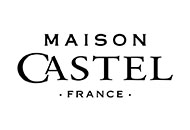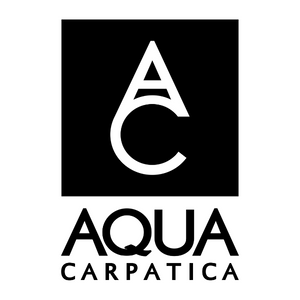When Scottish-born Cesidio Di Ciacca was growing up, he was regularly asked: “Where are you from?”
His brothers Paul, Kevin, John and Mark weren’t asked this question as frequently.
“My name marked me out as being a wee bit different to everybody else,” Cesidio explains in his soft Scottish accent.
Named after his grandfather, who died on an internee ship despatched to Canada at the start of World War Two, Cesidio wanted to learn more about his namesake and the village he quit in 1900 – Picinisco, in Italy, between Rome and Naples.
“I wanted to learn about him because I never knew him, and I wanted to touch that history,” Cesidio tells me over lunch in his sister Carina Contini’s restaurant in Edinburgh.

“The village was always something to aspire to, and my grandmother went there every year for three or four months. I first got to go when I was nine years old and still have a lot of memories of it. I went back again when I was 17.”
The gap is because Cesidio (above) is one of eight children and they took it in turns to go with their grandmother while their parents stayed home to run the family ice-cream parlour in Cockenzie, East Lothian.
The family farm in the Val di Comino, after which they were named, ‘I Ciacca’, was often mentioned in revered tones at clan gatherings. “I didn’t really know what it was, but I always had this hankering to maybe try and identify what we owned there and do something with it,” Cesidio recalls.

For more than 40 years, this remained a dream thwarted by everyday life: building a successful career as a lawyer, then as an adviser-director to a small number of growing businesses, all while supporting a wife and two children (above). After the businesses were sold in 2007, Cesidio found himself “with a bit of capital and time, and we decided that I could buy a small apartment in Picinisco, to go back there and visit sometimes.”
'Bigger than we thought'The apartment turned out “bigger than we thought”. It was a former bishop’s palazzo built in the ancient walls of Picinisco. Cesidio considered turning it into a timeshare but the local mayor persuaded him a small hotel would be better. Sotto Le Stelle – which translates as ‘beneath the stars’ – is the result: a boutique hotel with six suites (one, two and three bedroom), each with views over the Comino Valley and the family’s olive groves.
The target market is people like him. People who have links with the village and area and want to reconnect with the land of their forefathers. Over the last century, members of the family and other villagers emigrated to Scotland, England, France, Canada and America. Actor Peter Capaldi and pop star Lewis Capaldi can trace their heritage to the village, while the Val di Comino was home to relatives of sculptor Sir Eduardo Paolozzi, Anita Roddick (founder of The Body Shop), Charles Forte (of the Forte Group) and Lady Gaga.
“The intention with the suites is to allow people to stay there for longer periods, adopting the timeshare perspective,” Cesidio states.
“We decided not to do a bar or restaurant so we didn’t compete with locals or create bad will.” But, he admits, this constrains the hotel business.
When his lawyer-daughter Sofia (below) expressed an interest in changing careers and coming onboard, the idea snowballed again.

The land and buildings of the I Ciacca farm had been completely abandoned since the last of the Di Ciacca family to live there died in 1969. The family has now bought back about 60ha of land on the edge of one of Italy’s finest nature reserves, the Abruzzo, Lazio and Molise National Park. Much of I Ciacca is woodland, but there are also 10-12ha of olive groves and just under 5ha which have been hand-planted with vines over the last eight years.
To put I Ciacca back together again, Cesidio had to buy more than 220 parcels of land from more than 140 different people. “All of them relatives up to six degrees, all of them descendants of someone who had been born there in 1834.”

They have also bought back the deserted hamlet that had been home to the Di Ciacca family for more than 500 years (since well before written records began). The tiny houses have been knocked through to create spaces for conferences, events (such as weddings), olive oil bottling, a liqueur store, and a couple of staff apartments. They plan to install a kitchen shortly and open a cookery school this summer.
The cookery school will offer courses on local agriculture and gastronomy, beekeeping, foraging, and how to make traditional cheeses, artisan bread, pasta and olive oil. Herbs have been planted along the outside walls.
Underground is a new winery, which opened in 2018 and is kitted out with cement tanks from Nico Velo.

Although the valley is home to Pecorino di Picinisco DOP, Cannellini di Atina DOP, Peperoni di Pontecorvo DOP, and Cabernet di Atina DOC, Cesidio chose to plant the indigenous white grape Maturano (above), which was almost lost and is only recently coming back into commercial cultivation. DNA analysis carried out by a French laboratory proves this to be an ancient grape not linked to any other known variety.
Farming on the estate is organic. As Sofia says: “Choosing to be organic in such a natural, pure environment made sense.”
Cesidio adds: “It’s the right thing to do.”

For winemaking duties they approached leading wine consultant Alberto Antonini for a recommendation, but he decided to take on the job himself. To learn more about the variety while they were waiing for their vines to grow, they bought some grapes in 2015. It taught them that bottle ageing is crucial.
They lost their own 2016 vintage to wild boar and have now buried fences 1-1.5m into the soil.
In December 2019, in Edinburgh, they launched their first commercial line-up, a range of three wines from the 2017 vintage, made in Alberto’s winery in Tuscany.

The wines are: Nostalgia (above), from the first pressing; Sotto Le Stelle, from grapes cold-soaked for four days; and Matrimonia, a 50/50 blend of the first two wines.
Sofia describes the more commercial Nostalgia as “a fitting tribute to our ancestors from I Ciacca who made the very first wines with the Maturano grape here over a century ago”.
The label on the bottle shows Cesidio’s grandfather and his three brothers in the early 1900s, before they left Picinisco and moved to Scotland.
Peronospora ravaged the 2018 vintage, and they only produced 4,500 bottles (compared to 2017’s 10,000). However, 2019 produced a good harvest of excellent quality. Rubbing out some of the flowers to reduce the number of berries and make the bunch more open has led to healthier grapes. For this vintage they are ditching Matrimonia to focus on Nostalgia and the skin-contact Sotto Le Stelle.
Although all their wines are organic and ‘natural’ (with low levels of sulphites), they also have a small quantity of the 2019 vintage still lying on skins. It will need three or four years of bottle ageing – but “is showing great potential”, according to Cesidio.
“We’re still experimenting,” he says.
He thinks the grapes – with their big, round berries and firm skins – could also be suited to a passito-style wine.
Another chapter in the I Ciacca story is being drafted.


 English
English French
French



.png)


.png)





